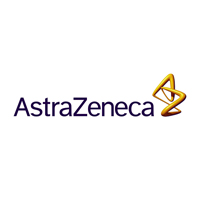AstraZeneca (LON:AZN) and MSD Inc., Kenilworth, N.J., US (MSD: known as Merck & Co., Inc. inside the US and Canada) has announced that the US Food and Drug Administration has accepted a New Drug Application and granted Priority Review for selumetinib as a potential new medicine for paediatric patients aged three years and older with neurofibromatosis type 1 and symptomatic, inoperable plexiform neurofibromas.
This is the first acceptance of a regulatory submission for an oral monotherapy for the treatment of NF1, a rare and incurable genetic condition. A Prescription Drug User Fee Act (PDUFA) date is set for the second quarter of 2020.
The regulatory submission was based on positive results from the National Cancer Institute (NCI) Cancer Therapy Evaluation Program (CTEP)-sponsored SPRINT Phase II Stratum 1 trial. An Objective Response Rate (ORR) was achieved in 66% of paediatric patients with NF1 and symptomatic, inoperable PNs (n=33/50 patients) when treated with selumetinib as a twice-daily oral monotherapy. ORR was defined as the percentage of patients with a confirmed complete or partial response of ≥ 20% tumour volume reduction.
Selumetinib, a MEK 1/2 inhibitor was granted US FDA Breakthrough Therapy Designation in April 2019, Orphan Drug Designation in February 2018, EU Orphan Designation in August 2018 and Swissmedic Orphan Drug Status in December 2018. AstraZeneca and MSD are jointly developing and commercialising selumetinib globally under a license agreement.
About SPRINT
SPRINT is a US NCI CTEP-sponsored Phase I/II trial. The Phase I trial was designed to identify the optimal Phase II dosing regimen, and the results were published in The New England Journal of Medicine.1
About selumetinib
Selumetinib is a MEK 1/2 inhibitor. It is designed to inhibit the MEK enzyme in the RAS/MAPK pathway, a cell-signalling pathway, associated with cancer cell growth and proliferation in a number of different tumour types.
About NF1
NF1 is an incurable genetic condition that affects one in every 3,000 to 4,000 individuals.2,3 It is caused by a spontaneous or inherited mutation in the NF1 gene and is associated with many symptoms, including soft lumps on and under the skin (cutaneous neurofibromas), skin pigmentation (so-called ‘cafe au lait’ spots) and, in 30-50% of patients, tumours develop on the nerve sheaths (plexiform neurofibromas).1 These plexiform neurofibromas can cause clinical issues such as pain, motor dysfunction, airway dysfunction, bowel/bladder dysfunction and disfigurement as well as having the potential to transform into malignant peripheral nerve sheath tumours (MPNST).1
People with NF1 may experience a number of complications such as learning difficulties, visual impairment, twisting and curvature of the spine, high blood pressure, and epilepsy. NF1 also increases a person’s risk of developing other cancers, including malignant brain tumours, MPNST and leukaemia. Symptoms begin during early childhood, with varying degrees of severity, and can reduce life expectancy by up to 15 years.4
About the AstraZeneca and MSD strategic oncology collaboration
In July 2017, AstraZeneca and Merck & Co., Inc., Kenilworth, NJ, US, known as MSD outside the United States and Canada, announced a global strategic oncology collaboration to co-develop and co-commercialise Lynparza, the world’s first PARP inhibitor, and potential new medicine selumetinib, a MEK inhibitor, for multiple cancer types. Working together, the companies will develop Lynparza and selumetinib in combination with other potential new medicines and as monotherapies. Independently, the companies will develop Lynparza and selumetinib in combination with their respective PD-L1 and PD-1 medicines.
About AstraZeneca in Oncology
AstraZeneca has a deep-rooted heritage in Oncology and offers a quickly-growing portfolio of new medicines that has the potential to transform patients’ lives and the Company’s future. With at least six new medicines to be launched between 2014 and 2020, and a broad pipeline of small molecules and biologics in development, we are committed to advance Oncology as one of AstraZeneca’s four Growth Platforms focused on lung, ovarian, breast and blood cancers. In addition to our core capabilities, we actively pursue innovative partnerships and investments that accelerate the delivery of our strategy, as illustrated by our investment in Acerta Pharma in haematology.
By harnessing the power of four scientific platforms – Immuno-Oncology, Tumour Drivers and Resistance, DNA Damage Response and Antibody Drug Conjugates – and by championing the development of personalised combinations, AstraZeneca has the vision to redefine cancer treatment and one day eliminate cancer as a cause of death.
About AstraZeneca
AstraZeneca is a global, science-led biopharmaceutical company that focuses on the discovery, development and commercialisation of prescription medicines, primarily for the treatment of diseases in three therapy areas – Oncology, Cardiovascular, Renal and Metabolism, and Respiratory. AstraZeneca operates in over 100 countries and its innovative medicines are used by millions of patients worldwide. Please visit astrazeneca.com and follow the Company on Twitter @AstraZeneca.
References
1. Dombi E, et al. Activity of Selumetinib in Neurofibromatosis Type 1-Related Plexiform Neurofibromas. N Engl J Med. 2016;375:2550-2560.
2. National Institute of Neurological Disorders and Stroke. Neurofibromatosis Fact Sheet. “What is NF1?” Available at: https://www.ninds.nih.gov/disorders/patient-caregiver-education/fact-sheets/neurofibromatosis-fact-sheet #3162_2 Accessed October 2019.
3. ASCO Cancer.Net. Neurofibromatosis Type 1. Available at https://www.cancer.net/cancer-types/neurofibromatosis-type-1 Accessed June 2019.
4. Evans DGR, et al. Reduced Life Expectancy Seen in Hereditary Diseases Which Predispose to Early-Onset Tumors. Appl Clin Genet. 2013;6:53-61.








































